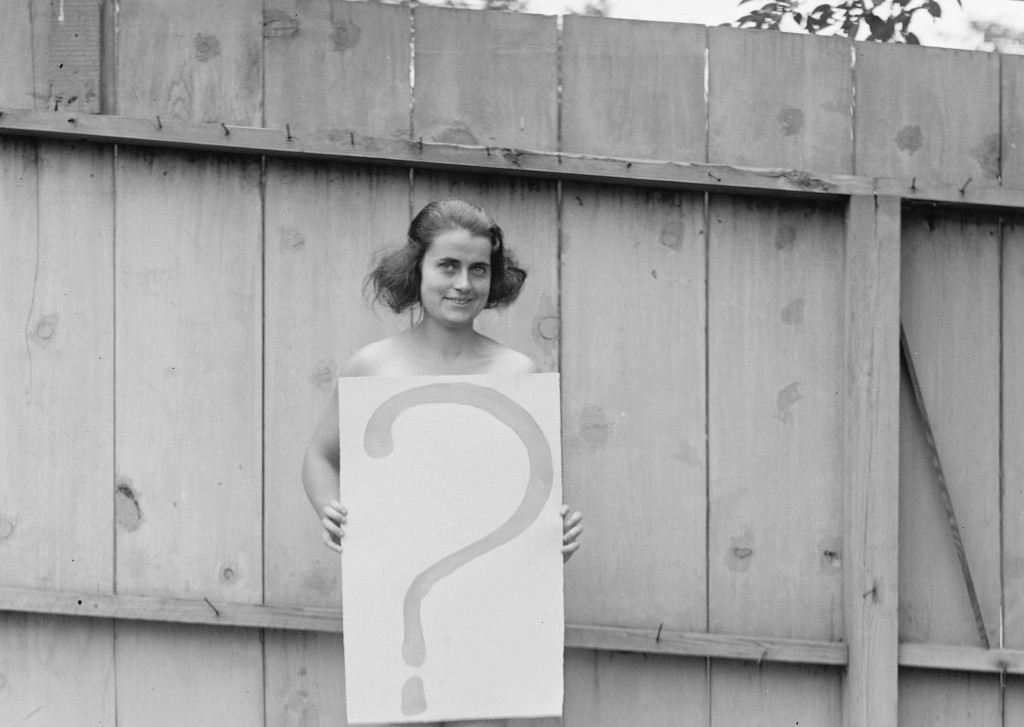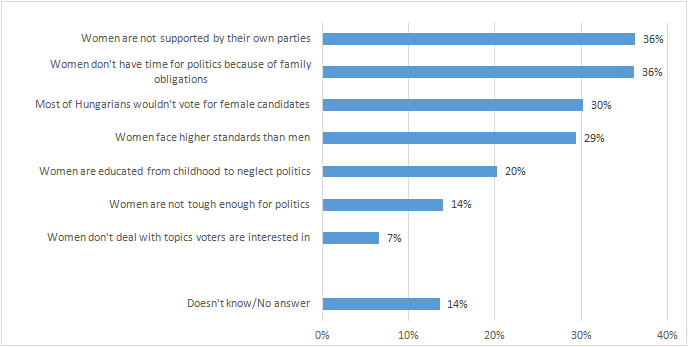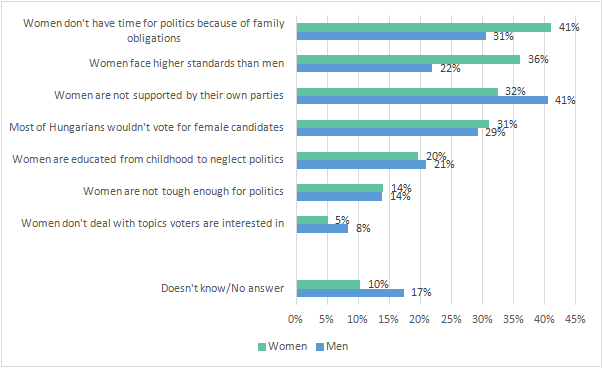The lack of support in their parties and the time shortage caused by family obligations – these are the main reasons that keep women out of parliament, according to the new representative research done by Integrity Lab.
Only 10% of Hungarian members of parliament are women. This has been basically the case since the change of regime, despite the fact that the participation of women in politics is on the rise all around Europe and the world. And while complete gender equality in political representation is still not feasible in most countries, Hungary is usually at the end of all equality ratings. The previous research done by Integrity Lab measured the attitudes of Hungarian society towards female politicians in general. The results showed that four out of five Hungarians oppose the statement that women are not competent enough to be politicians, and that left-liberal voters have a generally more progressive attitude regarding the topic. This time the question was what voters think are the reasons for so few women in the Hungarian politics.
The lack of support in parties and the time shortage caused by family obligations were the most commonly quoted reasons (both by 36%), and both regard to the direct environment of women – be it personal or professional. 30% of respondents mentioned as the possible reason the fact that most of the citizens would not vote for female candidates and 29% noticed that the expectations for women are higher. Every fifth respondent thought girls are educated to neglect politics. Reasons concerning the individual competency of women were chosen by less respondents.
Why, in your opinion, are there so few women in parliament? (up to two answers)
Women Mention Family, Men Blame Party Politics
The biggest difference in the attitudes of all respondents was visible gender-wise: 4 out of 10 women mentioned the time shortage caused by obligations at home, whereas 4 out of 10 men mentioned the missing support from political parties. The answer regarding the higher expectations towards women shows the biggest gender difference: more than one-third of women identified it as the main reason for the lack of women in politics (but only one-fifth of all men). Based on these answers, we may come to a conclusion that women consider family-related and social aspects the most important factors, while men pointed out the political reasons. And while there was a relatively high rate of people not answering this question at all (14%), men were significantly less likely to answer: 17 % omitted the question, compared to 10% of women.
Why, in your opinion, are there no more women in the parliament? (up to two answers)
It’s Not What Viktor Orbán Thinks
There is no difference between the number of men and women who think that women are not tough enough for politics – it is 1 out of 7 people in both gender groups. This result might be of a special importance in the light of Prime Minister Viktor Orbán’s opinion, who explained the lack of women in his government and the frontlines of politics (last year in a leaked recording) by stating that “women cannot handle the style of Hungarian politics”. As it turns out, the Hungarian society does not necessarily agree with him.
The youth, however, must have been brought up and educated in a different manner, since most graduates say that “Hungarians are just like that”. Only 15% of the youngest generation claimed that girls are educated to neglect politics while 28% of the people above 65 years old habe a similar opinion. On the one hand, it might be so because youngsters are already brought up in an environment with weaker traditional gender stereotypes. Moreover, older generations might have a more conscious way of thinking of specific decisions in their life and their connection to traditional roles and stereotypes.
One of the most interesting results is the high rate of people with higher education stating that the reason for such a small number of female Hungarian politicians is the fact that Hungarians would simply not vote for female candidates.





